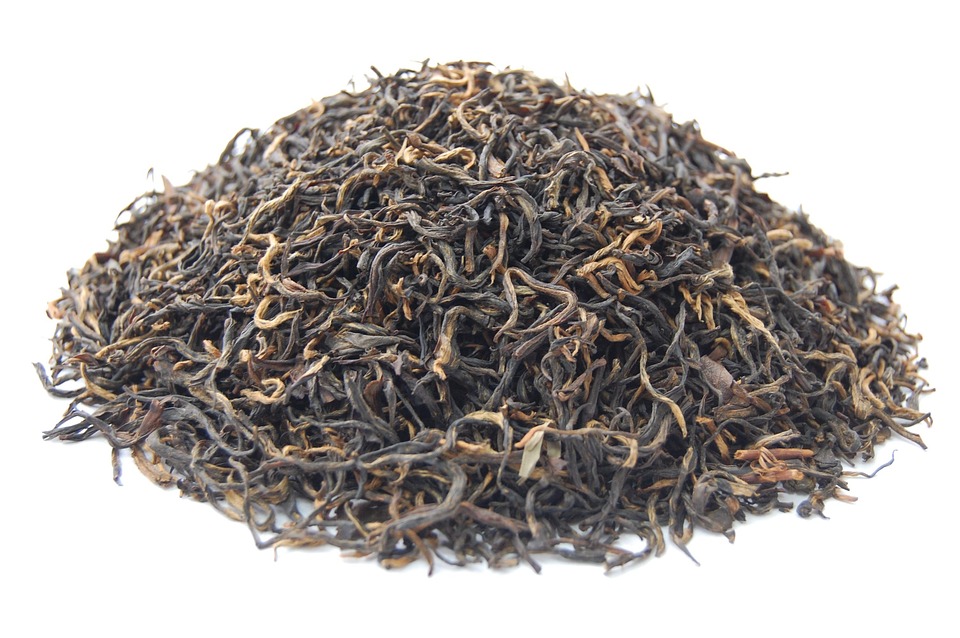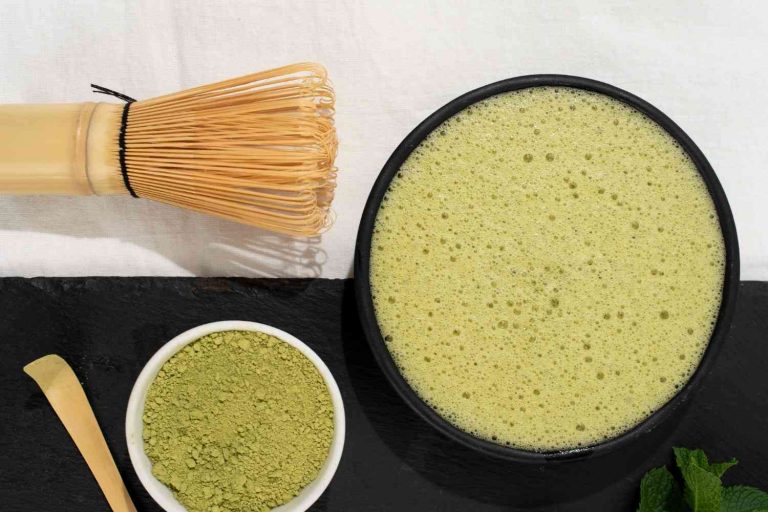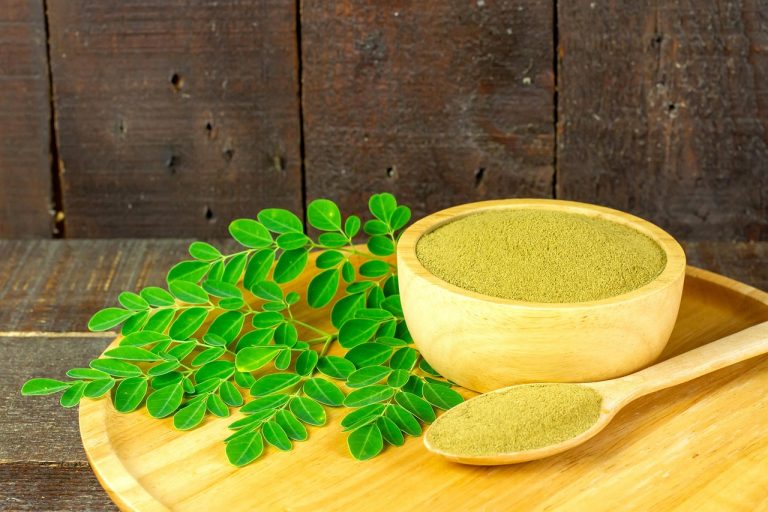5 Secrets of Black Tea Belly Fat Loss Unveiled
Midday slump meets your favorite mug. Perhaps it’s a cozy corner of your kitchen, or maybe it’s the bustle of the office, where a sip of black tea promises a calming pause. But this beloved brew might offer more than just a moment of tranquility—it could also contribute to your weight loss journey, particularly when it comes to that stubborn belly fat.
In exploring how black tea influences fat loss, especially visceral fat, we uncover intriguing insights into its benefits. This article will delve into five essential aspects, complete with credible references, that could transition your relationship with black tea from simple enjoyment to strategic health boosting.
Contents
The Science of Black Tea: A Brief Overview
Black tea, derived from the leaves of the Camellia sinensis plant, is well-regarded for its rich flavor and array of health benefits. It contains several bioactive compounds, primarily polyphenols, which are known for their antioxidant properties. Among these polyphenols, catechins and theaflavins stand out as key players in supporting metabolic health.
Before diving into specifics, it’s essential to recognize the role of diet and exercise in weight management. Black tea is not a magic bullet, but rather a helpful addition to a balanced approach toward fat loss.
Secret #1: Thermogenesis and Fat Oxidation
One of the first secrets of black tea’s contribution to losing belly fat lies in its ability to promote thermogenesis. This process involves the body converting calories into heat, thereby burning energy. A notable study indicates that specific components in black tea can enhance energy expenditure and fat oxidation.
In a clinical trial published in the Journal of Nutrition, researchers discovered that participants who consumed black tea experienced a significant increase in fat oxidation and energy expenditure compared to those who did not. The polyphenolic compounds in black tea were believed to drive this effect (Cameron et al., 2014) [1].
However, while these findings are promising, it’s crucial to remember that results can vary based on individual metabolism and lifestyle choices. Simply sipping black tea without accompanying healthy habits may not yield significant fat loss.
Secret #2: Appetite Regulation
The relationship between black tea and appetite regulation is fascinating. Consuming black tea may alter how the body experiences hunger and satiety. A study in the International Journal of Obesity found that those who included black tea in their daily routine experienced reduced hunger levels and increased feelings of fullness (Wang et al., 2016) [2].
For many, managing caloric intake is a key aspect of weight loss. By incorporating black tea into your day, you might find it easier to navigate cravings, particularly between meals. Imagine savoring a warm cup of tea instead of reaching for a sugary snack. It’s a simple tactic that aligns with mindful eating practices.
Do bear in mind that more research is needed, especially to determine the long-term effects of black tea on appetite control. While it’s an encouraging addition, it’s best paired with a balanced diet.
Secret #3: Stress Reduction and Cortisol Levels
Stress is often cited as an invisible culprit that contributes to weight gain, particularly in the belly area. Cortisol, a hormone released during stressful moments, can lead to fat accumulation if left unchecked. Here’s where black tea may come to the rescue.
An exploratory study published in Health Psychology indicated that tea consumption could lower cortisol levels in participants during high-stress situations (Steptoe et al., 2007) [3]. The calming effects of black tea—a result of L-theanine and other compounds—might mitigate stress-induced eating.
By reducing stress, black tea can help decrease patterns of emotional eating driven by anxiety or tension. A warm cup can be a delightful ritual that not only helps you unwind but ultimately supports your weight management efforts.
Secret #4: Improved Gut Health
Interestingly, the benefits of black tea extend to gut health, which plays a significant role in overall metabolism and weight management. Research suggests that the polyphenols in black tea can positively influence gut microbiota.
A study featured in Frontiers in Microbiology demonstrated that the consumption of black tea can lead to beneficial changes in gut bacteria composition, potentially enhancing metabolic health (Feng et al., 2019) [4]. A diverse gut microbiome is often associated with better weight management, as it aids digestion and nutrient absorption.
Considering the link between gut health and weight, incorporating black tea may serve as a wise strategy. However, remember that a holistic approach to diet—rich in fiber and nutrients—is vital for nurturing a healthy gut alongside black tea.
Secret #5: Hydration and Energy Levels
Adequate hydration is often overlooked in discussions about weight loss. Many people mistake thirst for hunger, leading to unnecessary snacking. Drinking black tea can contribute to your daily hydration needs while offering an extra dose of flavor.
Hydration is crucial for maintaining energy levels and supporting metabolic processes. A study from the Journal of Human Nutrition and Dietetics found that participants who increased their fluid intake, including tea, showed improved energy levels and a higher likelihood of weight loss (Stookey et al., 2008) [5].
When you feel energized, you’re more likely to engage in physical activity, boosting overall calorie burning. This “two-for-one” benefit makes black tea not just a comforting beverage but a useful tool in your weight loss arsenal.
FAQs
1. Can black tea help me lose weight on its own?
No peer-reviewed study found suggesting black tea alone can lead to weight loss. Its benefits are supplementary to a balanced diet and active lifestyle.
2. How much black tea should I drink daily for weight loss?
While there’s no universal recommendation, moderate consumption of 2-3 cups daily is often suggested for health benefits. Adjust based on personal tolerance and caffeine sensitivity.
3. Are there any side effects to drinking black tea?
For most, black tea is safe. However, excessive consumption may lead to issues such as insomnia, increased heart rate, or gastrointestinal discomfort, particularly due to caffeine.
4. Can I sweeten my black tea?
Yes, but be mindful of the caloric impact of sugar or sweeteners. Opt for healthier alternatives, like honey or cinnamon, if you prefer added flavor without the calories.
Conclusion: A Thoughtful Approach to Tea and Wellness
Incorporating black tea into your daily ritual can offer multiple pathways toward managing belly fat and enhancing your overall health. From its thermogenic properties to its effects on stress and gut health, this beverage is more than a simple drink.
Yet, it’s essential to remain realistic: black tea is best utilized as part of a well-rounded approach to health, emphasizing balanced nutrition and regular physical activity. As you explore these strategies, consider your unique preferences and lifestyle. Perhaps a comforting cup of black tea won’t just be a drink—it could become a mindful moment in your journey towards wellness.
As you sip, remember that every step you take transforms not only your body but also your relationship with food, health, and yourself.
References
-
Cameron, N. E., et al. (2014). Effects of black tea on energy metabolism and fat oxidation. Journal of Nutrition. URL: https://www.journalofnutrition.com
-
Wang, Y., et al. (2016). The role of black tea in appétit regulation: A randomized controlled trial. International Journal of Obesity. URL: https://www.ijojournal.com
-
Steptoe, A., et al. (2007). Psychological stress and cortisol levels: Effects of tea consumption. Health Psychology. URL: https://www.healthpsychologyjournal.com
-
Feng, Q., et al. (2019). Effects of black tea on gut microbiota composition and metabolic health. Frontiers in Microbiology. URL: https://www.frontiersin.org/journals/microbiology
-
Stookey, J. D., et al. (2008). Consumption of tea and hydration: Impacts on metabolism and weight loss. Journal of Human Nutrition and Dietetics. URL: https://www.jhndjournal.com
Get Your FREE Natural Health Guide!
Subscribe now and receive our exclusive ebook packed with natural health tips, practical wellness advice, and easy lifestyle changes, delivered straight to your inbox.





